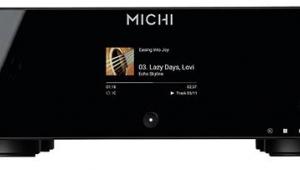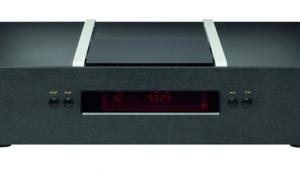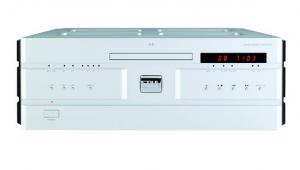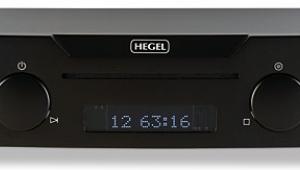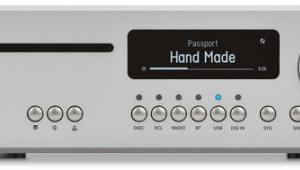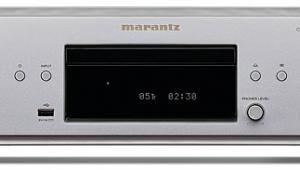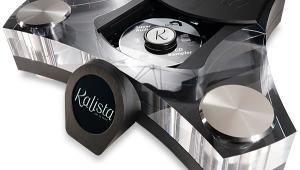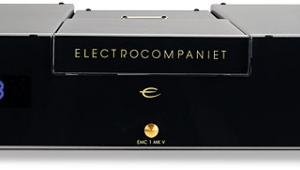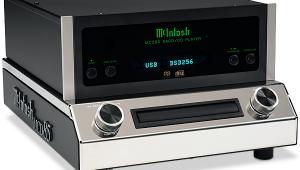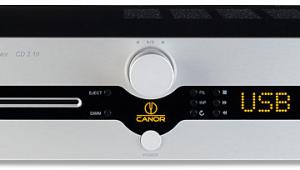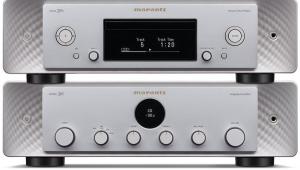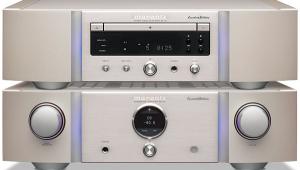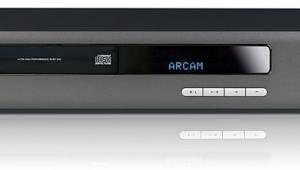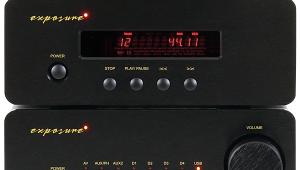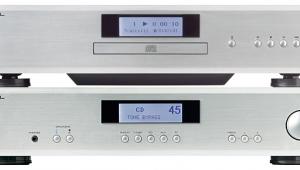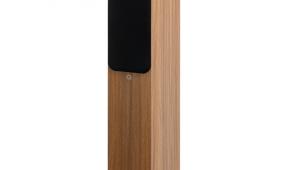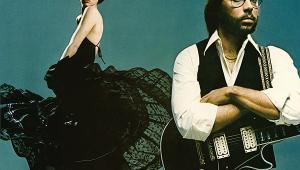Mcintosh Mcd1100 (£10,995)

The SACD won’t go away because enough of us realise that it sounds fabulous. It still has an important market in Japan, and supporters in unlikely places which keep the software flowing. McIntosh is one: as traditional a manufacturer as you can name, and not tempted towards controversy. Mac’s approach to SACD is almost matter-of-fact: it eschews 5.1; and clearly understands its markets.
McIntosh has amplified the appeal of the MCD1100 by adding variable output in addition to fixed. A proper headphone amplifier is another nice touch, reinforcing its role as a full-blown ‘control unit’. And it has added a host of digital inputs and outputs for full integration with computers, multiroom installations and other digital systems that can be accessed by coaxial, Toslink, XLR, BNC or USB. A wonderful concoction thus emerges that’s a full-on SACD/CD player plus five-input digital preamp.
To accomplish this, McIntosh has fitted four of its True Quad balanced DACs per stereo channel, both the PCM audio and the external digital inputs being treated to 32-bit/192kHz D/A conversion. McIntosh indicates compatibility with CD, SACD, CD-R, CD-RW, WMA and MP3. The unit looks more subdued than classic McIntosh hardware, thanks to an absence of blue-lit meters. All black with blue-lit highlights, the front panel is made of glass, with fibre-optic illumination. The usual controls are matched by a full-function remote.
PRESENCE
Although we tried the various digital inputs and listened as well to Red Book CDs, our primary concern was SACD playback. While normal CD playback was way beyond satisfactory, it was not so arresting as to overshadow the achievement of the SACD section. Equally, we found the digital inputs a convenience rather than a deal-maker: the wisest amongst you have already invested in Musical Fidelity Clics, Benchmarks, etc.
With Eleanor McEvoy’s luscious SACD I’d Rather Go Blonde, the first track starts with a weird plucking that could be a ukulele, a violin or even or some obscure Japanese stringed instrument. Which of these is not important – what matters into the room, fully formed and unmistakably ‘present’.
Followed by her slightly breathy voice, the plucking complementing McEvoy’s slight, almost delicate huskiness, both survived a path through all that complicated circuitry to arrive with sparkling finesse. We had no choice but to turn to another voice with equally distinctive qualities: the heartbreakingly beautiful The Very Thought Of You from Analogue Productions, with Nat ‘King’ Cole sounding divine… in the true meaning of the word. Heavenly, ethereal – and that’s just the strings! The MCD1100 positioned Nat just to the fore, the orchestra arranged behind in a wide arc. You could almost reach out, see the glow of his cigarette. And it all started to make sense.
However much one appreciates 5.1 when used correctly, the two-channel portrayal of this disc provided a seamless expanse, with front-to-back depth of cavernous proportions. It seemed real.
With The Doobie Brothers’ ‘Listen To The Music’, via MoFi’s SACD of Toulouse Street, the distinctive, instantly-familiar opening strumming possessed both attack and body with such authenticity that it became another example of how a superior system fools you into thinking the musician is present.
VERDICT
Clearly, McIntosh feels that enough customers agree SACD is a format worth supporting. While the preamp capabilities and readiness for streaming/downloading make it less of a gamble, the bottom line is that the player is touched by genius – and it sounds that way.
Originally published in the Yearbook 2011


